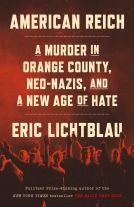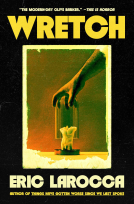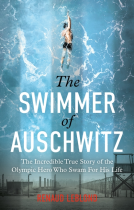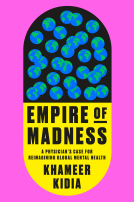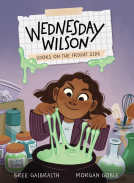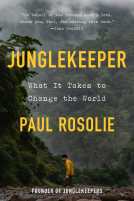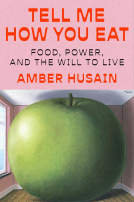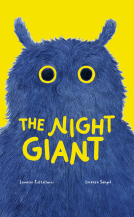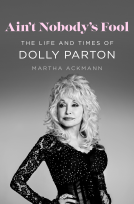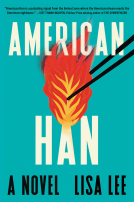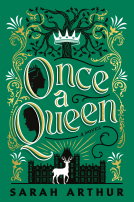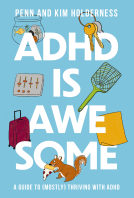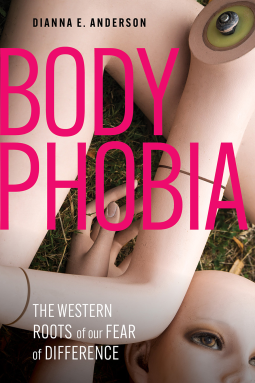
Body Phobia
The Western Roots of Our Fear of Difference
by Dex E. Anderson
This title was previously available on NetGalley and is now archived.
Send NetGalley books directly to your Kindle or Kindle app
1
To read on a Kindle or Kindle app, please add kindle@netgalley.com as an approved email address to receive files in your Amazon account. Click here for step-by-step instructions.
2
Also find your Kindle email address within your Amazon account, and enter it here.
Pub Date Oct 01 2024 | Archive Date Sep 30 2024
1517 Media | Broadleaf Books
Talking about this book? Use #BodyPhobia #NetGalley. More hashtag tips!
Description
"A convincing personal and philosophical exposé of how a culture that fears bodily differences harms vulnerable people."
—Foreword Reviews
Your body is who you are. We will only build a just society by rejecting fear of our bodies.
Western culture hates the fact that we have bodies--from evangelical culture, which insists "you are a soul and have a body," to wellness culture that turns your control over your body into a moral test, to transphobic activism that insists any step taken to change one's body is an immoral act, to the treatment of disabled bodies in a profoundly ableist culture. Fear has led cisgender, white, and able-bodied people to deprioritize the physical experience and prioritize the mind alone, contributing to our alienation from one another, the marginalization of certain kinds of bodies, and harm to us all.
Body Phobia is an examination of the western societal fear of the body. Starting with an excavation of the religious roots of this fear, Dianna Anderson then zooms out to show how fear of bodies permeates all parts of culture, influencing who gets to be perceived as more than their body, and who does not. By becoming self-aware of how our bodies interact with the world and what it means to have a body, we can begin to overcome the harm done in divorcing the western body and the western mind for centuries. Through cutting analysis and candid storytelling, Anderson exposes our fear-based politics and shows us a way to approach bodies that is neither positive nor negative but neutral. Our bodies are. And that's enough.
A Note From the Publisher
- A wide-ranging exploration of how we fear difference, including fear of fatness, of Black skin, of different sexualities and genders, and of disabilities
- Rather than a diet book aimed at changing our bodies or an embodiment book aimed at embracing our bodies, this book argues that our bodies are in fact neutral
-Written by non-binary writer Dianna E. Anderson, author of In Transit, with dedicated X following of 35K
Advance Praise
"Weaving together history, current events, and personal stories, the theological inquiry Body Phobia confronts unhelpful doctrines to issue a beautiful affirmation: ‘Your body is you, it is yours, it will change, and it will die. And all of that is okay.’”
—Foreword Reviews
“Anderson unravels how a culture rooted in 'Christian temperance' frames fat bodies as symbols of “overindulgence,” and how a cisgender culture views trans bodies as flouting the rules that govern 'God-given,' gendered bodies. Enriching the account with their personal experiences of seeking medical care as a fat person and a trans person, Anderson makes a persuasive case for how the body functions as a site of fear and fascination. It’s an eye-opener.”
—Publishers Weekly
“Anyone with a body will know how troublesome they can be, but Body Phobia explains it’s not just you—it’s all of us. Dianna Anderson’s keen insights into the ways we fear our own embodiment, and how ambient cultural anxiety around our bodies is vented particularly on fat, queer, and racialized bodies, is an essential tool to understanding and connecting with our embodied selves.”
—Evan Urquhart¸ founder of Assigned Media
“This book has the power to heal. As a therapist, I believe one of the precursors to healing is putting unspoken truth into language. Body Phobia does that for our bodies, for our selves. In it, Anderson has masterfully constructed a book that simultaneously challenges and liberates, all the while keeping readers enraptured by their storytelling. I wish I could put this book in front of everybody I know, saying, ‘Read this, and don’t stop until you are free.’”
—Matthias Roberts, psychotherapist and author of Holy Runaways and Beyond Shame
“This book is very timely. I’ve recently come across terms like anti-trans and homo-negativity as alternatives for transphobia and homophobia, and those can be useful. But this book tackles deeper, harder, bigger questions: What if the hate and discrimination we face actually are manifestations of fear, and if so, why? Using phobia, not just out of habit but because it is the most accurate term, poses a serious challenge to cishet-normativity and white, Western beauty standards.”
—Freddy McConnell, Guardian journalist profiled in the documentary Seahorse
“Combining searing memoir with deep analysis of theology, philosophy, literature, and more, Anderson locates the root of so many problems in our fear of bodies—our own and those of others. Then they show us a way out of this trap that goes far beyond mere acceptance, to integration, to becoming something whole.”
—David M. Perry, author of The Bright Ages
Marketing Plan
- National and online publicity campaign targeting trade media, mainstream and progressive media, and local media
- Targeted publicity campaign to LGBTQ+ media
- Trade and library advertising
- Social media and digital campaign targeting social justice and social science readers, LGBTQ+ readers, and librarians
- Author launch team
Available Editions
| EDITION | Other Format |
| ISBN | 9781506496436 |
| PRICE | $24.99 (USD) |
| PAGES | 158 |
Links
Available on NetGalley
Average rating from 25 members
Featured Reviews
 Reviewer 1001117
Reviewer 1001117
I was already aware of most of the issues presented in this book, but I liked the way the author expanded upon the issues, giving clear examples of each, and tying them all together as pieces of the whole of the fear society places on bodies. I think reading this book has helped me realize why I view my own body the way I do, and I think that I can now work on changing my views for the better.
 Brice M, Reviewer
Brice M, Reviewer
Thanks to NetGalley and Broadleaf Books for the ARC!
It’s hard to be a body, but why does matter matter?
Dianna E. Andersons’s "Body Phobia" is a thoughtful and full-bodied primer on the American fear of embodiment, offering a unique look at the ways it is rooted in a legacy of Protestantism.
This is a deeply personal book, and Anderson excels at infusing a moving transparency into their conversation with scholarship. They introduce so many wonderful scholars like Anthea Butler and Sami Schalk, but they mediate every heady concept through the lens of their personal experience. We always see how these issues impact real lives. Dualism means nothing until readers understand how it caused the author’s panic attacks. This approach makes it a perfect book for people who might bristle at the density of queer theory or disability studies.
Without a a doubt, the aforementioned religious focus is the book’s defining quality. I suspect some readers will be a bit befuddled by how often Anderson addresses religion, whereas others will wonder why the book doesn’t center exclusively around it. The references to people like John Piper always feel like an unexpected interruption, but I think that’s appropriate. It highlights the subtle pervasiveness of religious thought in American culture.
When Anderson identifies parallels between criminalization of disability and the way it’s associated with original sin, it feels novel. When they draw attention to the devastating impact of framing weight as a marker of holiness, it’s resonant. When they point out how evangelicals view children as “tools in the broader culture war,” it’s an urgent call to awareness.
These points feel like interruptions precisely because they are such “minor,” seemingly innocuous beliefs; that is why the consequences are so dire.
Anderson’s arguments are compelling, but what’s even more remarkable is the grace and compassion with which they articulate them. They write with wisdom and seem to consciously avoid bitterness, which allows them to make substantial, pointed critiques in a way that could be received by even the most conservative readers.
While most of the book is excellent, the chapters that intersect most directly with Anderson’s own life are easily the strongest. For example, their explorations of transphobia and fatphobia fare better than the chapters on bodyminds under capitalism or racialization. These topics are still addressed thoughtfully and thoroughly, but they struggle ever so slightly with a wandering scope.
Regardless, "Body Phobia" is an exceptional book for readers who are just beginning to consider what it means to be a bodymind in space, and I’m grateful to Dianna Anderson for their work here.
 Carina B, Reviewer
Carina B, Reviewer
Ah this one. This is an important one.
The deep dive in why we fear (our) bodies and what having a body means is so well done!
The chapters go in very different but interesting directions.
All in all really a great book!
 Grace D, Librarian
Grace D, Librarian
A sharp approach to the history of the body and the social, cultural, economic, political, and religious consequences of a material existence. I look forward to picking up a physical copy.
 Beth V, Reviewer
Beth V, Reviewer
I loved this book! I used to follow Anderson on Twitter (or they were in the same side of Twitter as me), so I was eager to get an ARC when I saw it on Netgalley. Anderson writes from the experience of being fat, trans, and white in Evangelicalism. The right reader for this book would be other people from the same evangelical or protestant American world.
I have always felt disconnected to my body, and this book explains how that may stem from my white evangelical upbringing.
Anderson argues that American WASP culture separated our body from soul (at least philosophically) and then made us afraid of the body. They outline the different aspects: religion, humanness, fatness, disability, race, LGBT, economics, and death.
This book helped me understand my lived experiences in a new way, and I think that it will be a new reference for me. Definitely worth ordering.
Thank you to Netgalley and Broadleaf for this ARC.
Readers who liked this book also liked:
Bree Galbraith, Morgan Goble
Business, Leadership, Finance, Children's Fiction, LGBTQIAP+
Joshua Colangelo-Bryan
Biographies & Memoirs, Nonfiction (Adult), Politics & Current Affairs
Penn Holderness; Kim Holderness
Health, Mind & Body, Parenting, Families, Relationships, Self-Help

